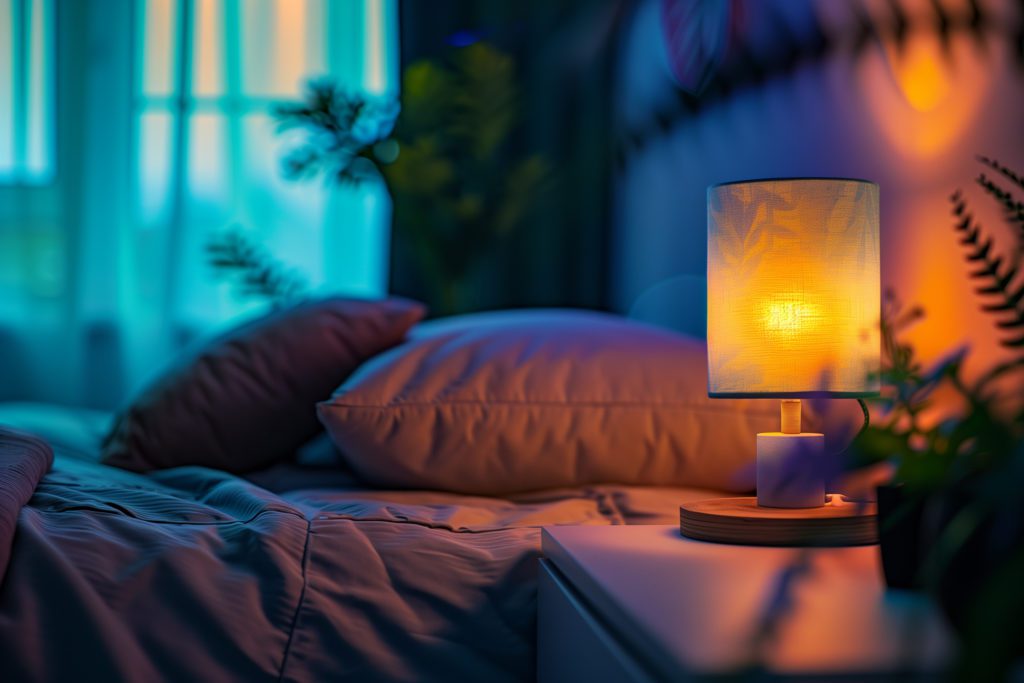
Traveling and Sleep Hygiene: Maintaining Healthy Sleep Habits While Traveling
Preparing for a big trip? Read on to discover how to maintain healthy sleep habits while traveling, even with unexpected disturbances to your rest.

Traveling can be an exciting opportunity for you to see new places, visit family and friends, and learn more about the world. However, if you’re traveling great distances, you already know how difficult it can be to deal with things like jetlag. Even if you drive a few hours from home, maintaining healthy sleep habits while you’re on the go can feel impossible. Fortunately, we have some tips and tricks for you that will ensure you get proper rest during your adventures.
We’ll explore some of the most common sleep challenges you’ll face that can impact your sleep hygiene, as well as how you can plan ahead for better sleep. Based on the latest insights in the field, we’ll give you some strategies that will help you maintain your sleep hygiene while you’re away from home. We’ll even cover how to handle unexpected sleep disruptions. Before we get into all of that, let’s discuss some sleep challenges people most commonly face when they travel.
Common Sleep Challenges You’ll Encounter While Traveling
While you’re away from home, it can be exciting to explore and take a vacation, but you’ll likely also face some challenges with sleep. The most common issues that people often face relate to travel fatigue, jetlag, new settings, and even new sleep schedules. Travel fatigue is typically associated with the stress you feel while traveling, no matter if you fly, drive, take the train, or even take a cruise. It can be even worse if you struggle with fears of flying, as the stress can make you feel uncomfortable, even to the point of struggling with sleep (Source: WebMD).
As you may know, jetlag occurs when you travel outside of your time zone, typically by more than three hours. For instance, if you travel from New York to Hawaii, you’ll experience jetlag, just as you would if you travel from Chicago to London. Interestingly enough, while you think that it might only impact those who have insomnia, even those without sleep disorders can be affected by jet lag and time zone shifts (Source: New York Times).
Add in the unfamiliarity of a hotel room, loved one’s home, and even different schedules, and you have the potential to disrupt your sleep hygiene completely. However, you can take steps to plan ahead, and we have found some fantastic tips for you to consider.
How to Plan Ahead for Better Sleep
For those wanting to avoid the exhaustion and sleep disturbances that typically come with travel, we’ve got plenty of insights that can help you plan ahead for better sleep. One of the most obvious tips is to ensure that you select flight times that minimize your jetlag. For instance, if you’re flying from Chicago to London, you might want to try and find a flight that allows you to sleep overnight and arrive in the morning or a flight that touches down at night so you can sleep when you arrive.
However, you can also choose to adjust your body’s clock before you travel. If you fly and go west by more than a few time zones, go to bed an hour or two later than usual. For those flying east, go to bed earlier by one to two hours that night before. Other studies on athletes who travel a lot for their competitions have shown that it can be beneficial to time your light exposure and even alter your meals to reacquaint yourself with the new time zone you’ll be in (Source: Sports Medicine).
It's also vital for you to stay hydrated and make yourself comfortable, whether that be bringing a pillow along for the trip or wearing loose-fitting clothing for your travel days. If you plan ahead, you can avoid challenges, but let’s also explore what to do to maintain your sleep hygiene while you’re traveling and away from home.
Strategies to Maintain Your Sleep Hygiene While Traveling
Planning ahead for sleep is critical, but what do you do when you’re traveling to support your sleep hygiene? Studies on pilots can provide us with some expert tips to ensure adequate sleep and maintenance of our sleep hygiene, even away from home. While many pilots have struggled with poor sleep hygiene, some of the best ways they maintain sleep hygiene include regular exercise, healthy meals, avoidance of alcohol or caffeine, and a relaxing bedtime ritual (Source: PubMed).
Another idea that you might try if you want to maintain your sleep hygiene while you travel is to use a sound machine or ambient tracks to help you get to bed. Some people use a fan, which you may have in your hotel room, or they choose to listen to a meditative playlist that can help them wind down. Regardless of what you choose, you can find a way to relax, shut out any remaining noise, and encourage better rest, even during short naps. The most important thing is to make sure you’re relaxed, taking care of yourself, and minding how you feel.
Mitigating Unexpected Sleep Disruptions
If you find yourself dealing with unexpected sleep disruptions, it can be a real pain, especially when you’re away from home. The truth is, you’ll likely get woken up by a neighbor in your hotel, or you’ll hear a crying baby on the airplane. It happens, but how do you overcome these situations, and how do you get back to sleep?
In these situations, it’s best to use relaxation methods that help reduce your stress and promote your rest. Many people find comfort in some music, while others like to listen to meditative playlists or ambient tracks. Some people even use earplugs and see that the limitation of the noise can put them at ease.
If you absolutely have to, short naps can be extremely helpful. However, be careful not to take too long a nap, as too long could hurt your circadian rhythm, especially if you are hours away from your original time zone.
It’s Time to Prepare for Your Next Trip!
With an understanding of how to handle sleep challenges while you travel, you’ll be prepared for your next big vacation, whether it’s in the country or abroad. We hope that this article was informative for you as you plan ahead for your next big drive or flight. For more information and insights into the latest research on sleep health, visit our website today to read more from our experts.

Written by
Marie Soukup
Marie Soukup is a seasoned copywriter, editor, and Integrative Nutrition Health Coach with a certificate from the Institute of Integrative Nutrition (IIN). With years of experience working with brands across diverse industries, Marie is passionate about holistic health and crafting compelling content.
Download Pillow
Get help
Press & News
Legal
Connect
X (Twitter)
Company
Copyright © Neybox Digital Ltd.



